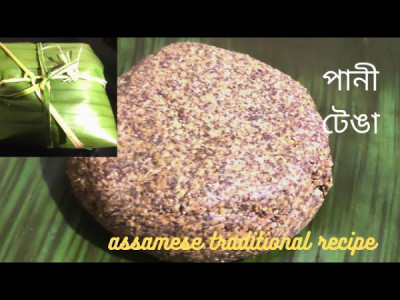What Is Panitenga In Assam? Traditional Assamese Recipe And Health Benefits Explained



Panitenga is made by fermenting mustard seeds with water and sometimes rice, allowing natural microbes to develop a sour, tangy, and slightly spicy flavor. This fermentation process not only enhances the taste but also increases the nutritional value of mustard seeds.
Rich in Probiotics: Supports gut health and improves digestion.
High in Antioxidants: Helps protect the body from oxidative stress.
Boosts Immunity: Fermentation enhances bioavailability of nutrients.
Aids Metabolism: Contains enzymes that improve metabolic processes.
Ingredients:
1 cup mustard seeds
1 cup cooked rice (optional)
Water as needed
Clean jar or earthen pot for fermentation
Method:
Soak mustard seeds in water overnight.
Grind soaked mustard seeds coarsely with cooked rice if using.
Mix the ground mustard and rice with some water to form a thick batter.
Transfer the mixture to a clean jar or earthen pot.
Cover loosely and leave it to ferment at room temperature for 3-5 days, stirring once daily.
Once fermented, Panitenga is ready to use as a condiment or cooking ingredient.
Added to vegetable or fish curries for tanginess.
Served as a spicy condiment alongside rice.
Mixed with greens or used in chutneys.
Panitenga is more than just a condiment — it is a culturally significant food that enriches Assamese meals with unique flavors and health benefits.